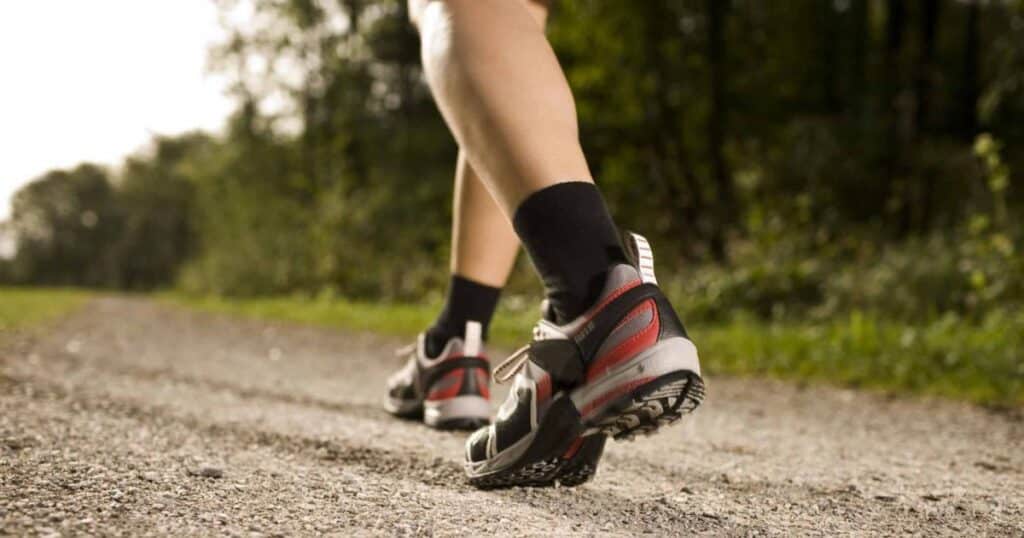Walking is an excellent low-impact exercise with numerous health benefits. But have you ever wondered how long it would take you to walk a specific distance, like 7 miles? The answer isn’t as straightforward as you might think, as various factors play a role in determining your walking pace and overall time.
In this comprehensive guide, we’ll explore everything you need to know about walking 7 miles, including factors that affect your time, expert tips, training plans, and the incredible advantages of incorporating this distance into your daily routine.
Factors That Affect Your 7-Mile Walking Time
Your walking time for 7 miles can vary significantly depending on several key factors:
Age and Fitness Level
Age and overall fitness are closely linked to walking speed. Generally, younger individuals and those who exercise regularly tend to walk faster than older adults or those with lower fitness levels.
However, it’s important to note that individual variations exist, and some older adults may outpace their younger counterparts if they maintain an active lifestyle.
Gender
Studies have shown that, on average, men tend to walk slightly faster than women. This difference is often attributed to factors such as stride length, muscle mass, and overall body composition. However, it’s crucial to remember that these are generalizations, and individual capabilities can vary greatly.
Example: A study published in the Journal of Applied Physiology found that men walk approximately 5% faster than women on average, with a typical walking speed of 3.2 mph for men and 3.0 mph for women.
More Post:
What you need to know about the Orangetheory Class Cancellation policy
Height and Stride Length
Height plays a significant role in determining an individual’s stride length, which directly impacts walking speed. Taller individuals typically have longer strides, allowing them to cover more ground with fewer steps.
Conversely, shorter individuals may need to take more steps to cover the same distance, potentially slowing their pace.
Here’s a table illustrating the relationship between height, stride length, and estimated time to walk 7 miles:
| Height (inches) | Female Stride Length (ft) | Male Stride Length (ft) | Female Time (approx.) | Male Time (approx.) |
| 60 (5’0″) | 2.07 | 2.08 | 2 hrs 10 mins | 2 hrs 5 mins |
| 64 (5’4″) | 2.20 | 2.21 | 2 hrs | 1 hr 55 mins |
| 68 (5’8″) | 2.34 | 2.35 | 1 hr 50 mins | 1 hr 45 mins |
| 72 (6’0″) | 2.48 | 2.49 | 1 hr 40 mins | 1 hr 35 mins |
| 76 (6’4″) | 2.62 | 2.63 | 1 hr 30 mins | 1 hr 25 mins |
Walking Speed and Terrain

Your walking speed is a crucial factor in determining how long it will take you to cover 7 miles.
The terrain you’re walking on can also significantly impact your pace. Generally, walking on flat, even surfaces allows for a faster pace, while hiking on hilly or uneven terrain requires more effort and slows you down.
Experts typically categorize walking speeds as follows:
- Leisurely pace: 2.5 – 3.0 mph (15-20 minutes per mile)
- Moderate pace: 3.0 – 4.0 mph (10-15 minutes per mile)
- Brisk pace: 4.0 – 5.0 mph (7-10 minutes per mile)
Using these ranges, you can estimate how long it might take you to walk 7 miles:
- Leisurely pace: 2 hours 20 minutes – 2 hours 48 minutes
- Moderate pace: 1 hour 45 minutes – 2 hours 20 minutes
- Brisk pace: 1 hour 24 minutes – 1 hour 45 minutes
Keep in mind that these are approximate ranges, and your actual time may vary based on the specific factors mentioned above and your individual capabilities.
Expert Tips for Walking 7 Miles
To make your 7-mile walk enjoyable and efficient, here are some expert tips to keep in mind:
Proper Walking Form and Posture
Maintaining good posture and form is essential for maximizing efficiency and preventing injury during your walk. Keep your shoulders relaxed, engage your core muscles, and look straight ahead. Avoid leaning forward or backward, and take natural, comfortable strides.
Clothing and Gear Recommendations
Wear comfortable, breathable clothing and supportive shoes designed for walking or running. Consider investing in moisture-wicking fabrics to keep you dry and comfortable. Additionally, bring a water bottle, sunscreen, and a hat or visor for protection from the elements.
Hydration and Fueling Strategies
Staying hydrated is crucial, especially during longer walks. Experts recommend drinking water before, during, and after your walk. If you plan on walking for an extended period, consider bringing along a snack like a banana or energy bar to replenish your energy levels.
Warming Up and Cooling Down
Always warm up with some light stretching or a brief walk before starting your 7-mile trek. This helps prepare your muscles and prevent injury. Similarly, cool down after your walk with some gentle stretches to promote recovery.
Incorporating Strength Training
While walking is an excellent cardiovascular exercise, incorporating strength training into your routine can help build muscle and increase your overall fitness level. Aim for two to three strength training sessions per week, focusing on major muscle groups like your legs, core, and upper body.
Benefits of Walking 7 Miles Daily
Incorporating a daily 7-mile walk into your routine can offer numerous physical and mental health benefits:
Calories Burned
Walking 7 miles can burn a significant number of calories, contributing to weight management and overall fitness. The exact number of calories burned will vary based on your weight, age, and walking speed, but here’s an estimate:
- For a 150-pound person walking at a moderate pace (3.5 mph), a 7-mile walk can burn approximately 500-600 calories.
- For a 200-pound person walking at the same pace, the calorie burn can range from 650-800 calories.
Cardiovascular Health
Regular brisk walking has been shown to improve cardiovascular health by lowering blood pressure, reducing the risk of heart disease, and improving circulation.
Muscle Toning
While walking may not build significant muscle mass, it can help tone and strengthen your leg muscles, core, and other stabilizing muscles used during the activity.
Stress Relief
Walking has been proven to be an effective stress-relieving activity. The repetitive motion and exposure to natural surroundings can help calm the mind and reduce anxiety and depression symptoms.
Increased Energy Levels
Regular exercise, including walking, can boost energy levels by improving cardiovascular fitness and promoting better sleep quality.
Training Plan to Walk 7 Miles
If you’re new to walking longer distances, it’s essential to gradually build up your endurance to avoid injury and burnout. Here’s a sample training plan to help you work up to walking 7 miles:
Week 1: Walk 2 miles every other day Week 2: Walk 3 miles every other day Week 3: Walk 4 miles every other day Week 4: Walk 5 miles twice during the week Week 5: Walk 6 miles twice during the week Week 6: Walk 7 miles once during the week
Remember to listen to your body and adjust the plan as needed. Incorporate rest days, cross-training activities like cycling or swimming, and set achievable goals for yourself.
FAQs
How long would 7 miles take to walk?
For most people, 7 miles will take approximately 1.5 to 2.5 hours to walk, depending on their pace and individual factors like age, fitness level, and terrain.
How do I train to walk 7 miles?
Gradually increase your walking distance over several weeks, allowing your body to adapt. Start with shorter distances and gradually work your way up to 7 miles. Incorporate rest days and cross-training activities to avoid burnout.
Is 7 miles a good walk?
Yes, walking 7 miles is considered an excellent distance for improving cardiovascular health, burning calories, and gaining the numerous benefits of regular exercise.
How long is 7 miles in minutes?
At a moderate pace of 3.5 mph, 7 miles would take approximately 120 minutes (2 hours) to walk.

Hello I am Gavin Hunt,
I has covered sports for over 20 years. I started writing for his college newspaper.
I reported on college sports. After graduating, became a sports reporter for a small local paper.
For ten years, I covered local high school and amateur games.
I profiled struggling athletes, inspiring readers. Later, I moved to the main city paper as lead columnist.
Now I travels nationally covering pro hometown teams.
My entertaining columns are widely read. With a big social media following, I has become the city’s top sports pundit.
